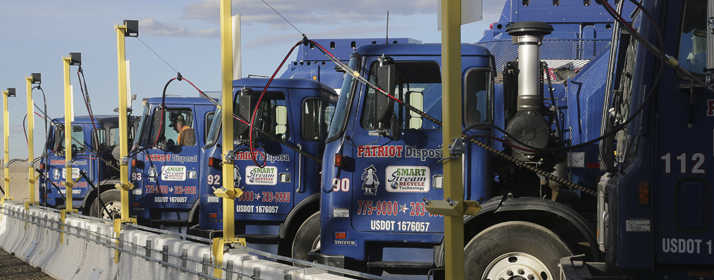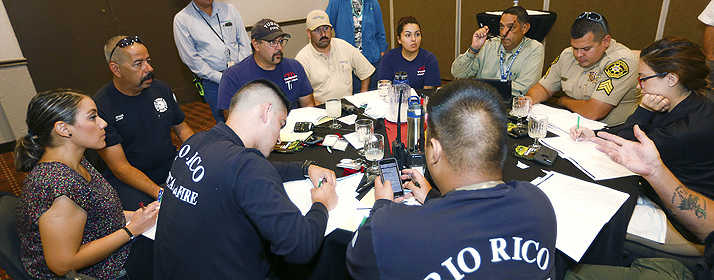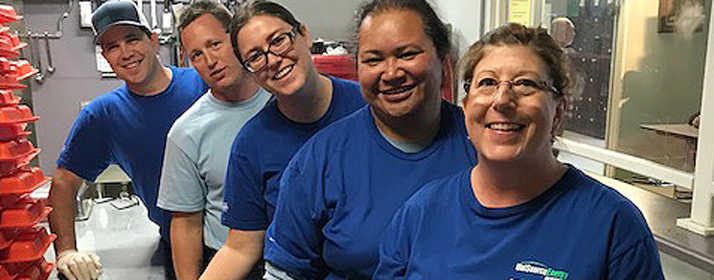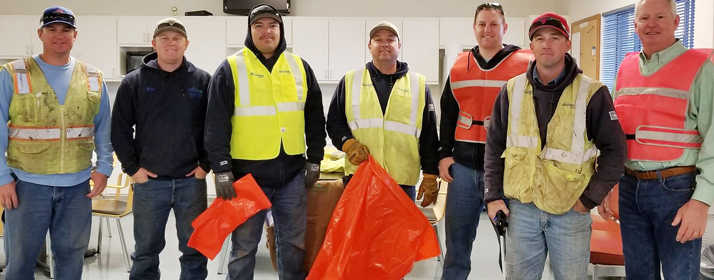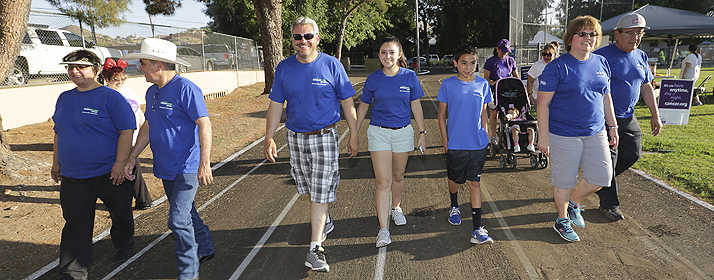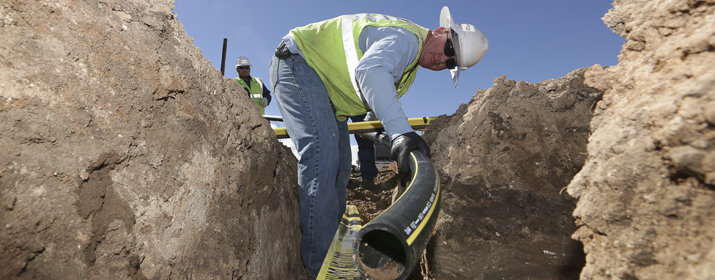
Maintaining 4,600 miles of pipelines that deliver natural gas to 160,000 customers in 39 communities is no small task. UniSource’s service territory spans 56,240 square miles that includes the northern half of Arizona and Santa Cruz County to the far south.
When customers turn on their gas stove or clothes dryer, they expect instant energy and UniSource aims to deliver.
UniSource purchases natural gas from several suppliers that distribute it through interstate pipelines at very high pressures of 200 to 1500 pounds per square inch (psi). The pressure of the gas is “stepped down” to 60 psi at our regulator stations and then reduced again to just 4 ounces or 0.25 psi by the time it reaches your gas meter and home.
Our team of 180 employees at seven offices across the state log hundreds of thousands of hours inspecting, testing and maintaining our pipelines and equipment to deliver safe, reliable energy to your home.
“Natural gas utilities are highly regulated – even more so than electric utilities – to ensure safety,” said Richard Perez, Supervisor of Cathodic Protection and Leak Survey for UniSource in Flagstaff.
Federal and state agencies regulate most aspects of natural gas operations, including transport and storage, maintenance and inspections, pressure and flow rates and even the odorant levels of gas.
To maintain our system, UniSource technicians inspect pipelines throughout our service territory to identify leaks by using special detection equipment. They also check for signs of corrosion.
“Seven regional construction inspectors conduct leak surveys annually for business areas and every three to four years (instead of every five years as regulations require) for residential areas,” said Perez. “Any above-ground lines, such as those near interstate lines, railways or bridge crossings, are inspected quarterly.”
If leaks or corrosion are found, no matter how small, that portion of the line is immediately repaired or replaced.
To prevent corrosion, UniSource technicians apply electrostatic current to steel pipelines, a process called cathodic protection.
In addition to maintaining pipelines, UniSource construction crews check and maintain valves and equipment, test pressures at regulator stations weekly, and inspect interstate and interconnection transmission lines. This team also ensures that meters and equipment are painted according to regulations.
Even the level of odorant added to the colorless, odorless gas must be tested and adjusted.
“As a distributor, UniSource is required to add odorant to the gas for safety reasons so that it can be detected,” explained Martin Conboy, Gas Engineering Supervisor. “We monitor the level of odorant by taking reads throughout the system to make sure we’re at the correct levels. If it’s too strong or too weak, we adjust our odorant injection rates to make sure we are within the allowable standards.”
All of these measures help us maintain our highly reliability service. Outages are rare. If they do occur, the cause is usually a gas line damaged by excavation or a supplier shortage.
You can help keep gas service reliable by calling 811 at least two full working days before digging and by immediately reporting gas leaks if you see, smell or hear them by calling 911 and our emergency hotline at 877-837-4968. UniSource Customer Care is available 24/7 to answer your questions and provide assistance.
“Most of our system is underground, out of sight and many people don’t understand how it works,” said Conboy. “They turn on the gas and it’s delivered. In reality, it takes hundreds of people at UniSource working together to make that happen.”


